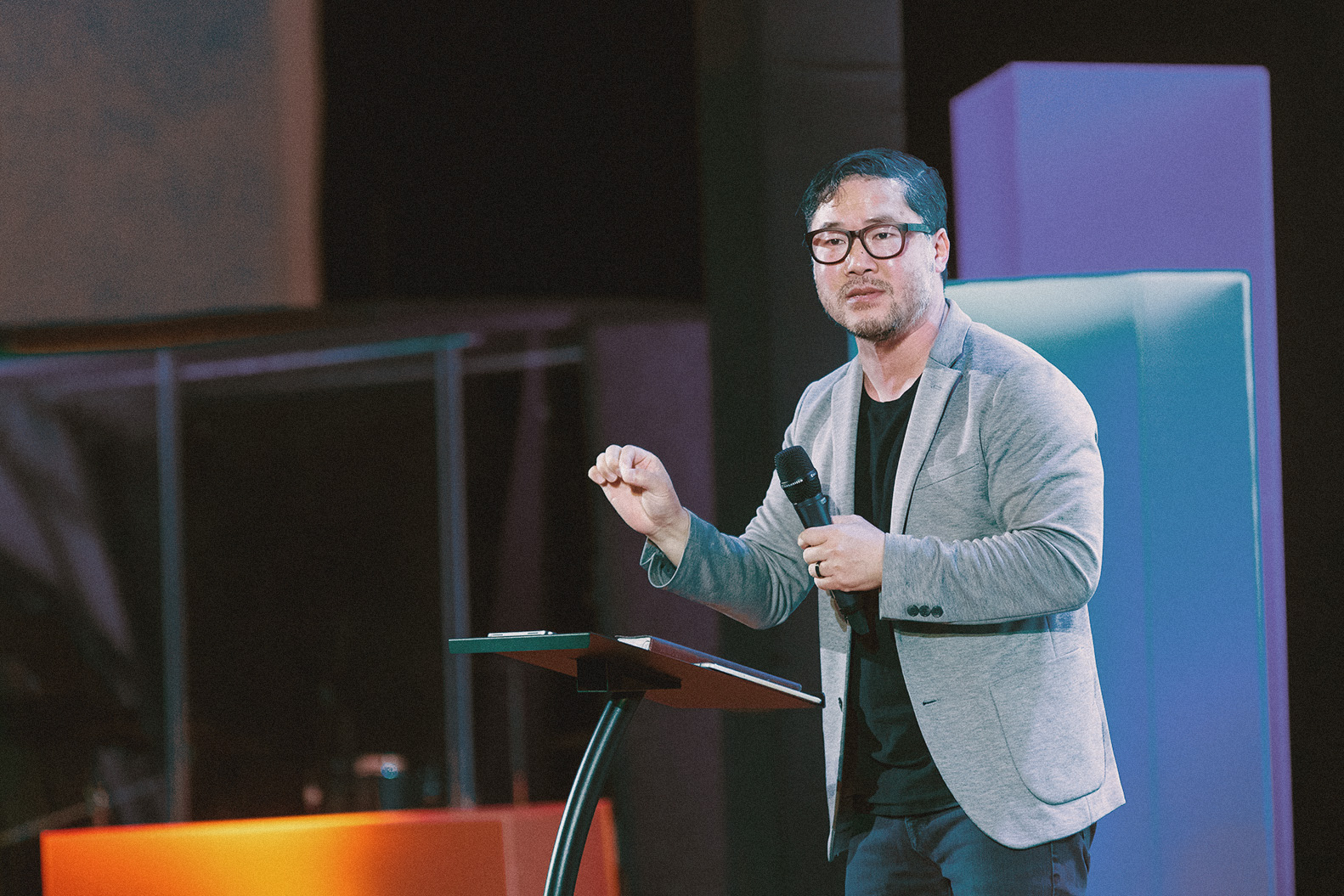“I can’t stand your religious meetings. I’m fed up with your conferences and conventions. I want nothing to do with your religion projects, your pretentious slogans and goals. I’m sick of your fund-raising schemes, your public relations and image making. I’ve had all I can take of your noisy ego-music. When was the last time you sang to me? Do you know what I want? I want justice — oceans of it. I want fairness — rivers of it. That’s what I want. That’s all I want.” (Amos 5:21-24 MSG)
Intense scripture. We need context to understand what God is speaking to us through one of His imperfect servants, the prophet Amos.
Amos lived in Tekoa, a small town about 10 miles (16km) south of a larger, well-known city called Jerusalem. Now Amos had two jobs: Amos was a shepherd and a farmer.
As a farmer, he would take his harvest to the market in Tekoa. But since Tekoa was such a small market, he realised he had to go from market to market. Thus began his travelling business.

During that time, the northern region were kicking butt. They were making lots of money and had influence. Amos becomes disrupted and disturbed by what he’s seen. He has a hard time sleeping. He begins to have dreams and revelations.
This might be awkward, but as a pastor I desire for Christians to experience a Gospel that comforts us… but also disrupts us. We need both. The Gospel does both because human beings need both. But if we’re honest, our tendency and inclination is towards a Gospel that only comforts us.
I desire for Christians to experience a Gospel that comforts us… but also disrupts us.
As Amos travels up north, he begins to see with his own eyes how God’s people began to be involved in a system of marginalising and oppressing others – particularly the poor.
It begins to infuriate Amos. It angers him so much that eventually he conjures up enough courage to go a particular temple called Bethel and speak God’s truth to Amaziah the priest.
It wasn’t pretty. They threatened his very life. It would be naive and irresponsible for any of us to speak about God’s work and neglect the messiness and even physical danger that comes at times with doing God’s work.
Don’t walk away with a romantic perspective of what it mean to do the work of Jesus. There is a cost. Folks may get upset. Friendships, relationships might turn sour as you speak truth into things that are broken.

With that context in mind, I want you to hear this passage one more time.
“I can’t stand your religious meetings. I’m fed up with your conferences and conventions. I want nothing to do with your religion projects, your pretentious slogans and goals. I’m sick of your fund-raising schemes, your public relations and image making. I’ve had all I can take of your noisy ego-music. When was the last time you sang to me? Do you know what I want? I want justice — oceans of it. I want fairness — rivers of it. That’s what I want. That’s all I want.” (Amos 5:21-24 MSG)
These words are heavy and strong. Amos was communicating that we can do religious things – and that’s good and beautiful – but if we think that this right here is the totality of God, then we’re actually playing a game. It’s a show!
But God through Amos is saying: “If you do all of these things and you don’t care for your neighbour, especially those who are forgotten and marginalised, if you don’t care for justice, mercy and compassion – it’s all fake.”
The reason why justice ought to matter for us is because we love God.
If we desire worship in our lives to grow deep and robust, we must stop playing these games. We need to make sure that our pursuit of justice is not out of self-righteousness, or because it’s a hip or millennial thing. The reason why justice ought to matter for us is because we love God.
In loving God, it reflects the character of God because justice itself is worship. What we’re doing here is part of it. The singing, the preaching, the fellowship. It’s all worship, but it’s not the totality of it. It’s a lifestyle conviction.
When you look at Old Testament (OT) and the New Testament (NT), there is a strong pervasive thread about God and justice reflecting the very character of God. Over 200 references about justice in the OT. Isaiah 61:8 tells us: “I, the Lord, love justice.”
It’s not a peripheral, tertiary, secondary issue. When people ask me what kind of conference The Justice Conference is, my response is that it’s a Gospel conference. It should not just be reserved for those who are working in NGOs. Justice is the very core of who we worship.
One of the most dangerous questions I keep being asked in the last five to 10 years is this: “Pastor Eugene, what’s more important: justice or evangelism?”
That’s like asking which is more important: the Great Commandment or the Great Commission. It all matters to God. We need a theological framework. We need to know as followers of Christ that the reason why we do what we do is not because it’s a fad. The reason why we pursue these things is because it reflects our worship of God.
Even good things – if we forget why we do what we do – can grow to become idolatries. God loves justice, but justice is not God. Justice is what we pursue because we worship God.

In the story of Amos, he is being broken by how religious people – who sing religious songs, who gather in religious churches and temples, who recite religious prayers – are the oppressors.
To love your neighbour is to acknowledge the fundamental and core theological truth that every single human being matters to God. That every single human being reflects the image of God and is fearfully and wonderfully made.
What does it mean to love your neighbour? It’s easy to love neighbours who look like you, dress like you, go to the same church as you. But all of Jesus’ stories about loving your neighbour also means loving those who don’t look like you, feel like you – even those who don’t worship like you.
Loving your neighbour means that there has to be a relationship. It’s not just having dignity for someone and walking away. It’s to see a person and understand that he or she reflects God’s image. It’s desiring to engage in a mutual, reciprocal relationship.
Often times, justice workers, if we’re not careful, we end up treating human beings like projects. God never intended for human beings to be treated like projects.
You can’t love your neighbour if you don’t know your neighbours. And whether we articulate it or not, there is a sinful thought festering in our mind and hearts that says “I am better”. This is why we need the mutuality of relationships.
Finally, if we think that changed hearts is the only way to fix brokenness in the world, we forget to acknowledge the danger of broken toxic systems and structures.
When human beings get together, sociologists or anthropologists tell us that whether we know it or not, we create culture. We create a system of doing things.
Human beings can create beautiful culture. But we can also create dangerous culture – culture that’s ungodly. If we’re not careful, we’ll end up creating culture that ends up serving ourselves. Broken people sometimes create broken systems.
To love your neighbour means to love someone’s heart, to treat them with dignity… but it also means having the courage to examine systems and structures.
We need changed hearts, but we also need the courage to change structures to allow our neighbours to flourish in love.
This article was adapted from the keynote speech by Eugene Cho, founder and executive director of One Day’s Wages (ODW), at The Justice Conference Asia 2019. ODW invites people to give their one day’s wages, which go directly to projects and partnerships that are fighting global poverty.
A former senior pastor of Quest Church in Seattle, Washington, Cho is also the author of Overrated: Are We More in Love with the Idea of Changing the World Than Actually Changing the World?.
- Does justice matter to you?
- Why are you pursuing justice?
- Who is your neighbour? And how can you love them?
- Do you see any similarities between Tekoa and Singapore?









